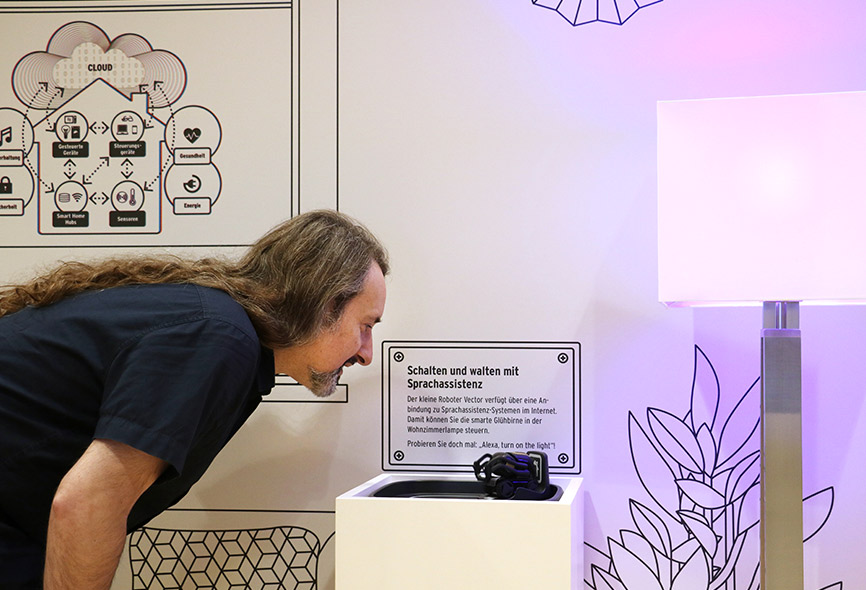“Smart Home – Sweet Home?” is the title of the exhibition that Ars Electronica Solutions has realized for the Salzburg Chamber of Labour (Arbeiterkammer). This is not the first exhibition to be realized in collaboration with the Chamber of Labour – “Out of Control” was already shown in Vienna, for example – where the tension between an increased quality of life and the loss of privacy is at the center of attention. In Salzburg, the focus is now on the intelligent home.
Beginning in October 2019, in Salzburg and the district offices of the Chamber of Labor in Zell am See, Bischofshofen, Tamsweg and Hallein, the effects of the ever-increasing digitalization on our everyday lives will be examined for one year. We spoke with Thomas Viehböck, Project Manager at Ars Electronica Solutions, to learn more.
Which smart devices do you have at home? And which ones would you never let move in with?
Thomas Viehböck: In my home, a small tablet has replaced most print media and my smart TV has Internet access to play videos. But a language assistance system like Alexa won’t come into my house in the near future.
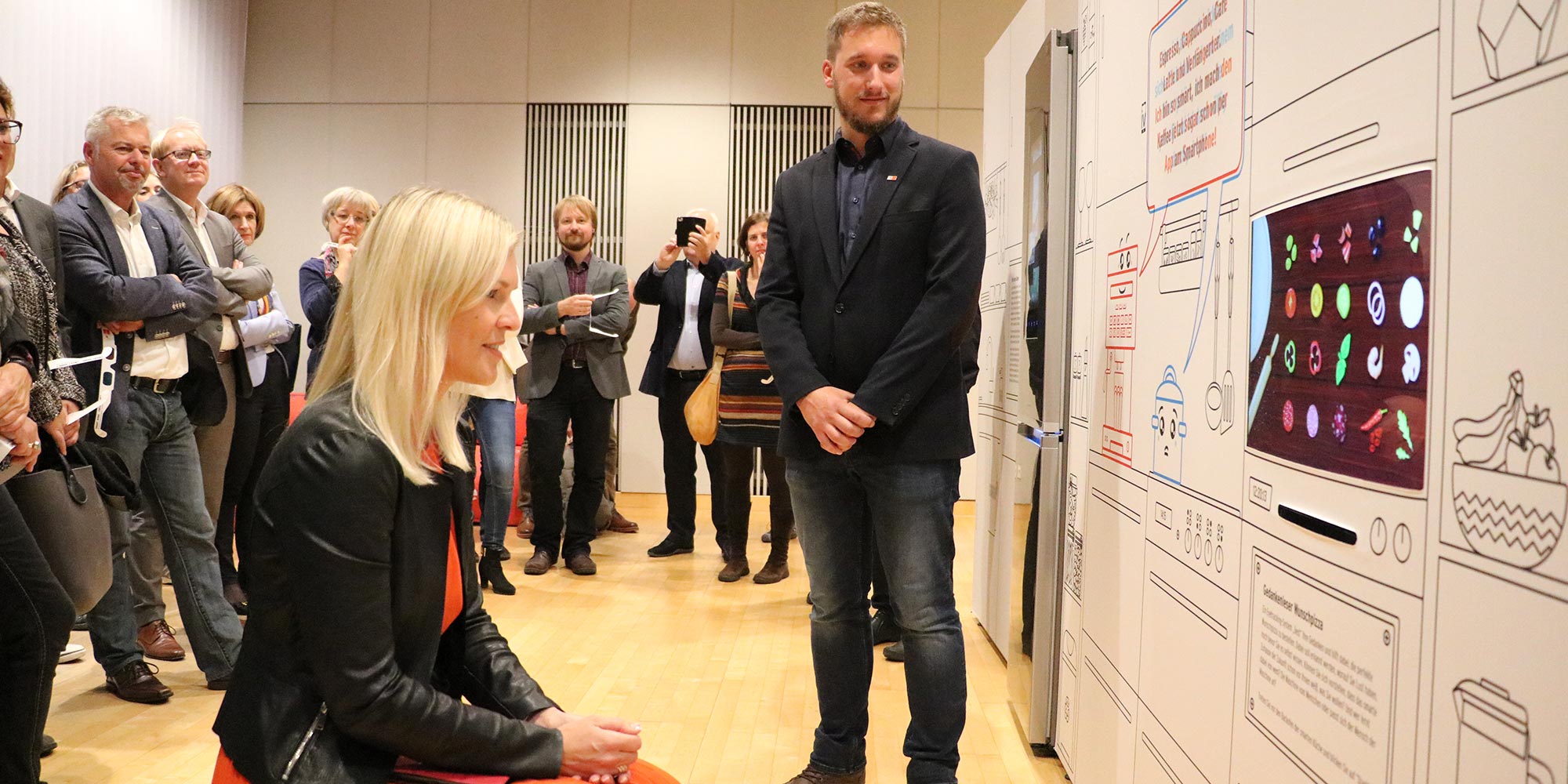
What is the greatest potential of smart technologies?
Thomas Viehböck: We humans use technology to simplify our lives and expand our possibilities. Through networking and automation, a smart home takes away our workload, helps save valuable energy, and increases safety and convenience.
In your opinion, which smart devices receive too little attention and why?
Thomas Viehböck: Most of these products on the market promise to simplify our lives, but some smart technologies can save lives for people with diseases or disabilities! Smart systems are being developed especially in the areas of nursing care for the elderly and the sick, which allow elderly people and those in need of care to live independently in their own four walls for longer. However, it is possible that this target group is not – or not yet – interesting enough for producers of smart home products to be advertised accordingly.
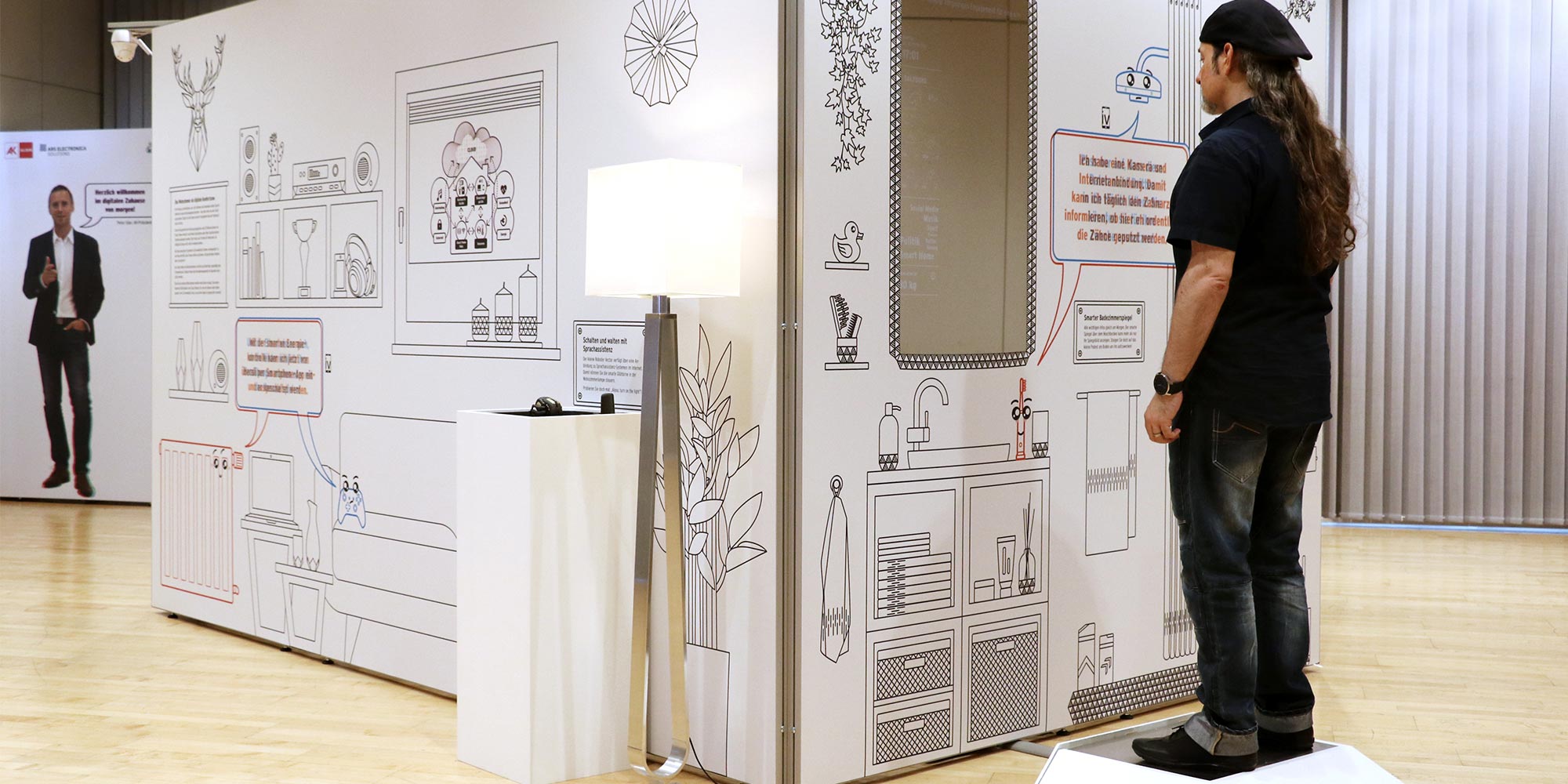
How did you approach the Smart Home – Sweet Home exhibition? What should be the main focus?
Thomas Viehböck: In several conversations and coordination with the customer, it quickly became clear that the technology in the smart home is one of the peaks of the giant iceberg of ” digitalization “. We also want to create an awareness that virtually every aspect of daily life can be captured and processed in the form of data. The exhibition was designed in such a way that the specially trained members of the Chamber of Labour – the “Guides” – have entry points for dialogue with visitors everywhere in order to discuss the effects of technological progress and the collection and use of this data.
What are the connections with the exhibition “Out of Control”?
Thomas Viehböck: Here and there, the collection and use of data and information about people is a central issue. Both exhibitions provide insights into how the progress of networked, digital technology is impacting the lives of individuals and may continue to do so in the future.
What is your favorite installation?
Thomas Viehböck: Personally, I like the 3D foil glasses. They are so delightfully old-school and give the exhibition (and its visitors) a very special charm.
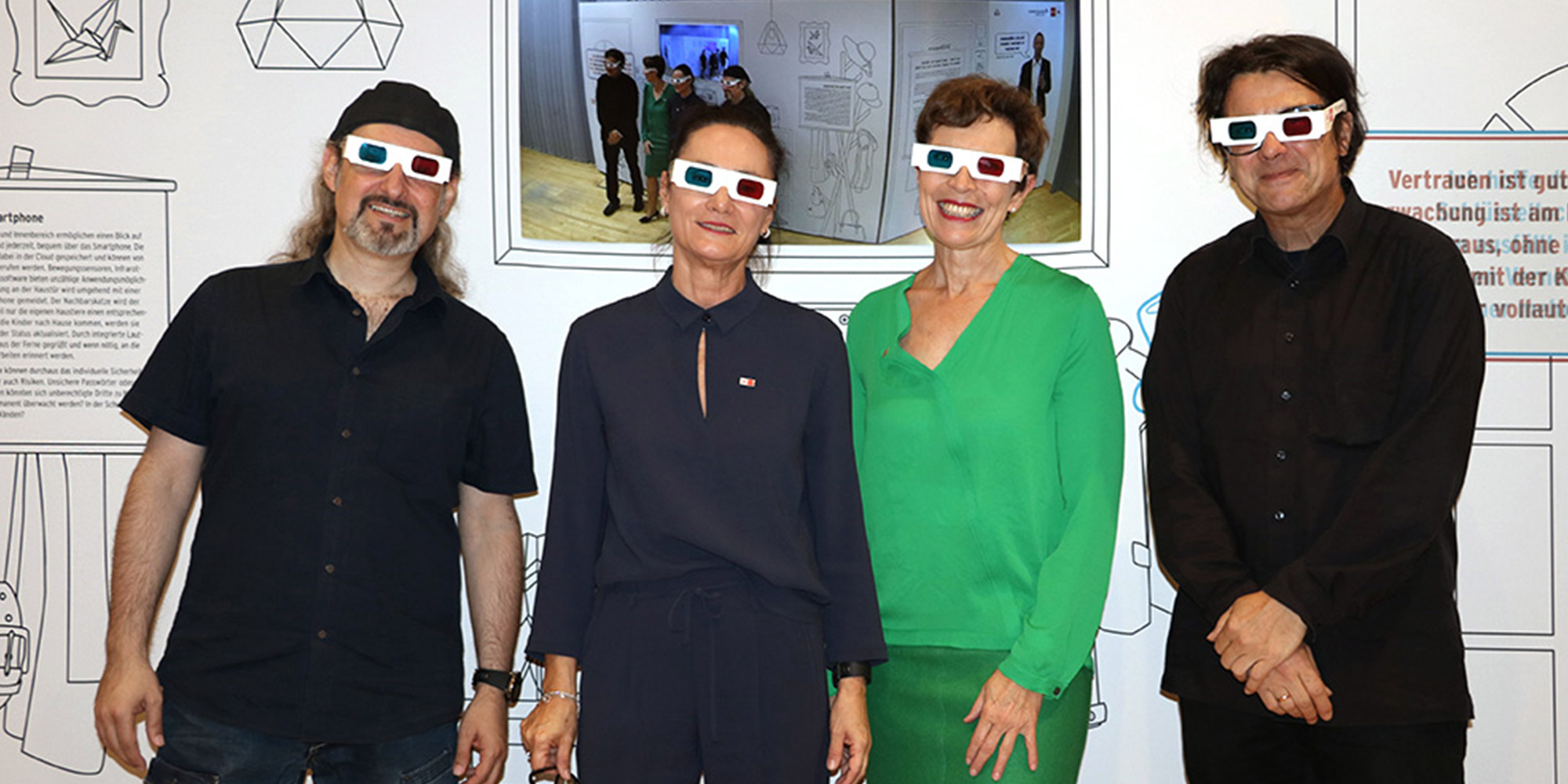
Do you really get the pizza you want from a mind-reading pizza oven?
Thomas Viehböck: That’s a good question! Our installation uses a very simple algorithm to determine which pizza layer you like. It will be really exciting if in the future self-learning AI systems are actually used to predict our decisions before we have even consciously made them!
Last but not least: How dangerous do you think total connectivity is?
Thomas Viehböck: Well, my personal feeling is that networking in itself – may it be total or not – is neutral in principle. However, the effects of an increasingly ruthless capitalism, the obvious greed and the insatiable hunger for power that global companies have do not necessarily strengthen my confidence in an ethical approach to the associated responsibility.
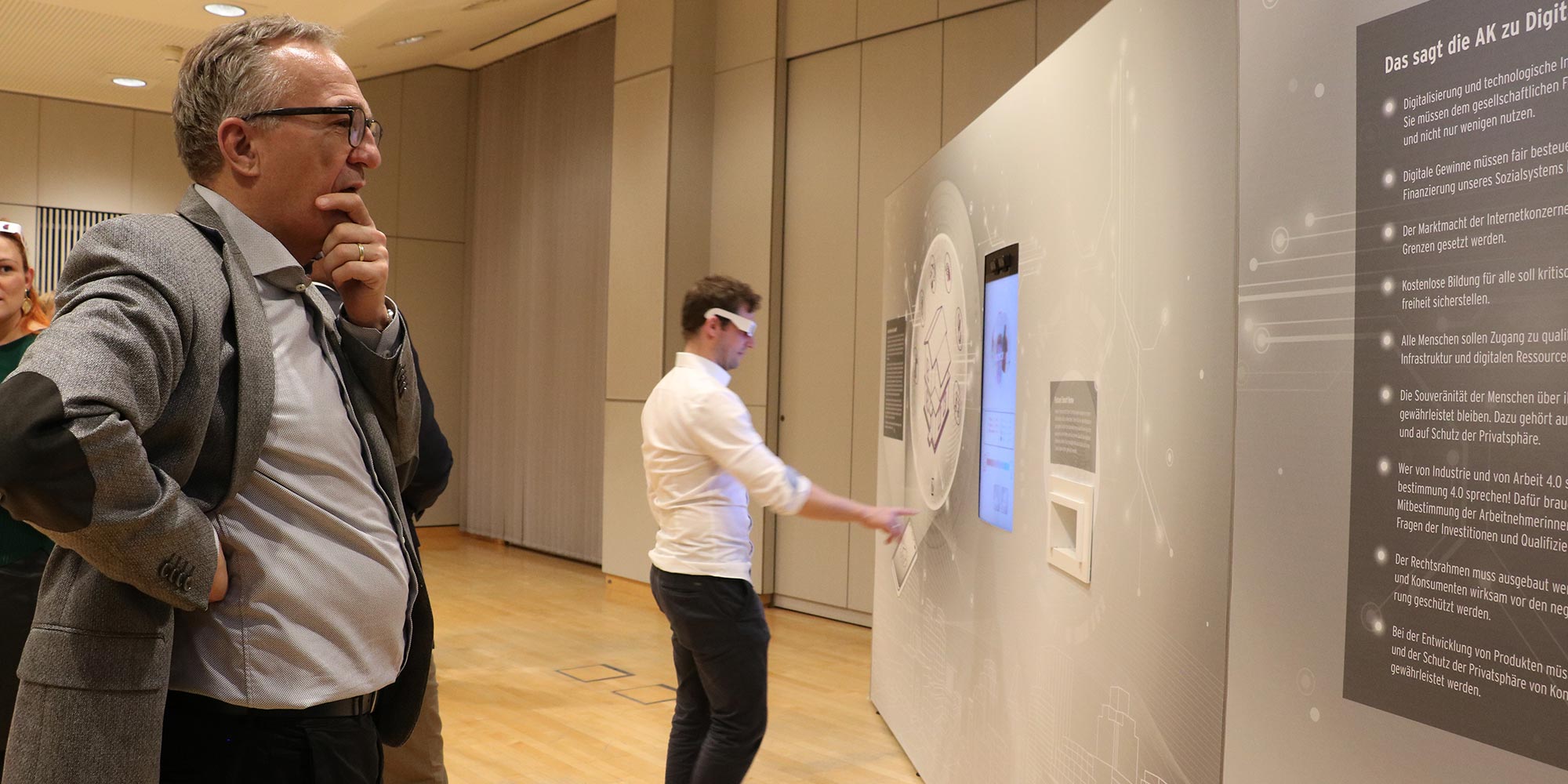

Thomas Viehböck is an artist and project manager at Ars Electronica Solutions. Born in 1975 in Linz, he went into business for himself after graduating from high school at the Kollegium Petrinum and opened the “Starmill Studio” at the Sternmühle in Marchtrenk with a friend. Parallel to his activities as a musician and music producer, he expanded his knowledge and experience in the field of sound and computer technology, including a completed apprenticeship in IT technology and the position of system administrator at the Internet café “Café Online” in Wels. From 2011, he worked as an infotrainer and area manager for the RoboLab and the VRLab at the Ars Electronica Center, before moving to Ars Electronica Solutions in 2019, where he has been a project manager since then.
